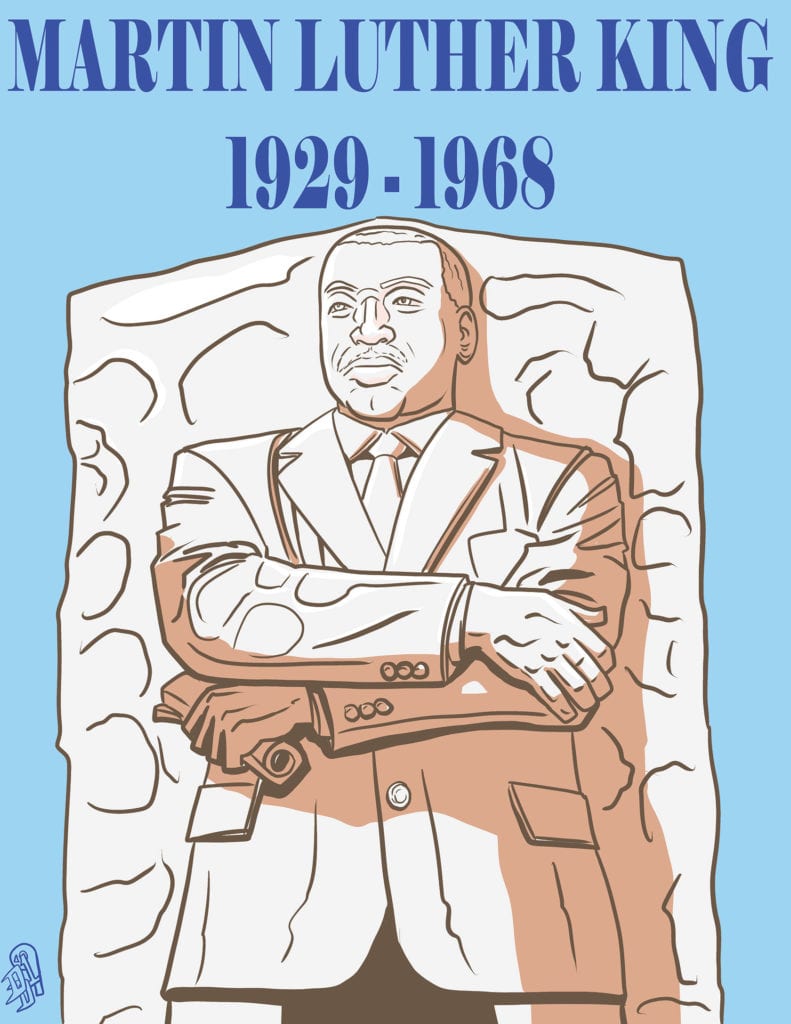
Rev. Martin Luther King is primarily remembered as the leader of the Civil Rights Movement. He is revered throughout the world for insisting, like Mahatma Gandhi, on non-violence. King and his cohorts were able to achieve enactment of the Civil Rights Act of 1964 and the Voting Rights Act of 1965. These laws made racial discrimination unlawful in education, employment and places of public accommodation, and facilitated equal access to the polls. These achievements are so great that King’s concern for poverty gets less attention. Now, in addition to poverty, there is a problem of a shrinking middle class.
In his speech when he was awarded the Nobel Peace Prize in 1964, King said “There is nothing new about poverty. What is new, however, is that we have the resources to get rid of it.” Soon after attending to the implementation of the civil rights legislative gains, King turned to the Poor People’s campaign. At the time of his assassination on Apr. 4, 1968, he was in Memphis, Tenn. campaigning for an increase in the salaries of garbage workers.
Over the years since then, the media have created the impression that poverty is essentially a problem of African Americans. Media accounts of the problem often included an image of poor blacks living in destitute circumstances. While poverty is a disproportionate problem of blacks, the impoverished population of whites in America is actually twice that of blacks. Racial antagonism in the country retards the development of a united political bloc to combat the problem.
Another national economic problem has developed that might lead to increased concern for poverty. Political pundits have been decrying the loss of the American middle class. While it is common for most Americans to define their status as middle class, sociologists and economists might have differences of opinion on who fits in and who does not. It is generally agreed, however, that the middle class votes and the lower class might not make it to the polls on Election Day.
An easy target for the source of the problem is those in the top one percent income level. Since 1966, their share of pretax income has grown from 13 percent to 20 percent. This is the reverse of the income distribution for those in the bottom half of pretax national income. In 1966, that group shared 20 percent of the income and they now have only 13 percent. Those in the so called middle class dropped from 44 percent to 40 percent.
The decline in income to the middle class is damaging, but this has happened at a time when prices have risen. According to a report in Fortune Magazine on “The Shrinking Middle Class,” prices in major cities have grown since 1990 as follows: education up 226 percent, rent of primary residence up 130 percent, and medical care up 189 percent.
Some conservatives insist that the problem exists because members of the underclass lack the determination and skill to develop their winning strategy to realize their American Dream. They insist that remedial government strategies or revised taxes would unjustly deprive the winners of the benefits of success. However, there are some who are concerned whether the American economic system fails to promote the necessary elements of a sound civil society.
King asserted in 1963 that “God never intended for one group of people to live in superfluous inordinate wealth, while others live in deadening poverty.” With the change in government the encounter is engaged.






